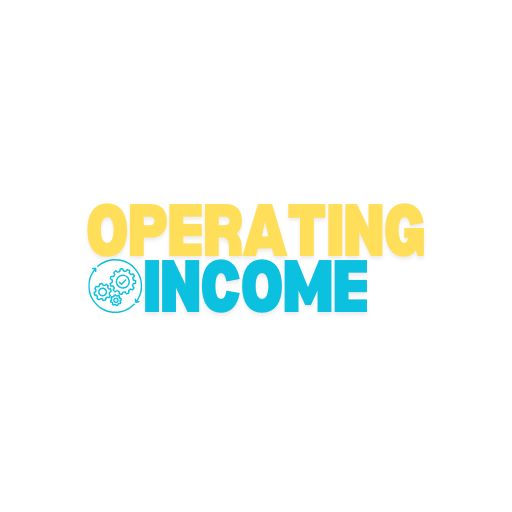Affiliate links for the products on this page are from partners that compensate us and terms apply to offers listed (see our advertiser disclosure with our list of partners for more details). However, our opinions are our own. See how we rate credit score services to help you make smart decisions with your money.
Introduction to Credit Builder Loans
What Is a Credit Builder Loan?
When you take out a credit builder loan, the creditor sets aside the money you “borrow” in a savings account. As you repay your loan, the creditor reports your payments to the three main credit bureaus. This builds a positive payment history, a key component of your credit score calculations. Once you reach a certain number of payments or pay the loan off, the creditor returns a portion of the money to you.
Since the creditor keeps the money until it’s paid off, they’re not at a massive risk of losing money. This means it can approve people with low credit scores or no credit. They also generally charge lower interest rates than traditional loans.
Why You May Need a Credit Builder Account
Having a good mix of credit types is one way to improve your credit score. While you may have several credit cards, installment loans are expensive and often inaccessible for those with bad credit. To address this, some lenders offer credit builder loans, which require borrowers to pay off their loans before they get the money. These loans pose little risk to lenders, so borrowers with a bad credit score can qualify.
Because of the way these loans work, they are often marketed as savings accounts since you put money away in increments that you’ll receive later. Many of these loans charge interest, so you’ll get back less than you put in. If you’re looking for a savings account, there are better places to look.
Compare Credit Builder Accounts
Best Credit Builder Loans of 2025
Compare the Top Credit Builder Loans
The best credit builder accounts have a range of flexibility in their loan offerings, report on-time payments to the credit bureaus, and have reasonable fees.
Here are the best credit builder accounts as picked by Business Insider editors in 2025.
Best for College Students: Fizz Credit Builder
Better Business Bureau rating: N/A
Cost: None
The Fizz credit builder account is a debit card that reports expenses to the credit bureaus without adding a hard inquiry on your credit report. There’s a lot to like about Fizz, such as SafeFreeze, which prevents you from additional spending if you didn’t pay off the previous day’s balance. Fizz also does not charge interest or fees on your balance. In fact, you can earn rewards by shopping at certain businesses, usually found on college campuses.
As a newer business, Fizz doesn’t have a page with the Better Business Bureau. However, it has an average of 4.6 stars across 184 reviews on Trustpilot. A full 94% of reviewers gave the service four or five stars. Fizz has more reviews on its app, receiving an average of 4.7 stars on the Apple app store and 4.6 stars on the Google Play store.
Read our Fizz credit builder review.
Best Interest Rates: Digital Credit Union
Better Business Bureau rating: A+
Cost: 5.00% APR
Digital Federal Credit Union (DCU) offers a good amount of flexibility with its credit builder loans, with loan amounts ranging from $500 to $3,000 over 12 to 24 months. The APR for these loans is steady at 5%, though DCU notes that it can change over time. Your money will also earn dividends in the savings account DCU puts your money in.
The biggest downside to DCU is its exclusivity. You have to be a member of Digital Credit Union to qualify for this loan, and membership is quite limited. DCU is available to a handful of organizations and communities around New England. It also partners with over 800 workplaces to give employees DCU memberships.
That said, you can access a DCU membership by joining one of the affiliated organizations listed on DCU’s website since they aren’t region-specific. Most of these organizations don’t have any location requirements, just a membership fee. You hold a DCU membership for life, so even when your membership at one of the listed organizations expires, you’ll still be a DCU member. Your family members will also be eligible for memberships.
While DCU has the best rates among credit builder loans, it has poor customer service ratings across the board. DCU’s BBB page has an average of 1.76 stars across 77 reviews. Its Trustpilot page doesn’t fare much better, receiving an average of 1.6 stars across 65 reviews. Reviews apply to DCU as a whole, not just its credit builder loan. Customers often complain about DCU’s poor customer service, particularly over the phone.
Read our DCU credit builder loan review.
Best for Availability: Self
Better Business Bureau rating: F
Cost: 15.51% to 15.92% APR
Self Credit Builder Account is one of the more established loan providers and one of the few providers that operate in all 50 states. It has four plans available, from small to extra large, that range from $25 to $150 monthly. All plans have a 24-month payment term.
One of Self’s most significant benefits is its Self Visa® Credit Card, which borrowers can qualify for after three months of on-time payments and $100 deposited. The secured credit card borrows against the money you have already deposited on your credit builder loan.
This card may not come with the lowest APR compared to other cards — it bounces around 29.24% Variable, but it’s another credit-building tool available to you as a Self customer. Remember that your credit limit on this card will not be terribly high since it’s based on the money you’ve already deposited. You will want to be careful how you use it so you don’t upset your credit utilization ratio, which will hurt your credit score and defeat the purpose of taking this loan out in the first place.
It’s also worth noting that Self has very poor ratings from former customers, an average of 3.29 on its Better Business Bureau page and 1.8 on Trustpilot. Negative reviews commonly cite payout issues, fraudulent accounts, and a general lack of responsiveness from customer service. It’s worth noting that some of these reviews misunderstood the purpose of credit builder loans.
The Better Business Bureau noted a pattern of complaints around Self and suspended its accreditation in the beginning of 2024. It cited several issues including a lack of adherence to advertising and and selling standards and failure to resolve marketplace disputes quickly.
Read our Self credit builder loan review.
Best for Teens: FreeKick
Better Business Bureau rating: A+
Cost: $0 – $149 annually
FreeKick is a product from Austin Capital Bank, the same company that owns CreditStrong, another credit builder account included in this guide. FreeKick allows parents to help their children build credit when they’re as young as 13 years old.
When you sign up for FreeKick, you can choose to pay $149 or place a $3,000 deposit in an FDIC-insured bank account. Both will give you access to FreeKick’s full services, which include comprehensive identity protection for two adults and six children and a credit builder account for children age 13 to 25. The credit builder will add a $500 revolving account to your child’s credit report.
While consumers older than 25 aren’t eligible for this product, it’s a great way for parents to build credit for their kids. It also offers a great alternative to adding your child as an authorized user on your credit card, especially for parents worried their children will overspend. Additionally, the identity protection features offered with FreeKick rival those offered among the best identity protection services.
Read our FreeKick credit builder account review.
Best for Loan Amount: CreditStrong
Better Business Bureau rating: B
Cost: 15.51% – 15.73% APR
CreditStrong is almost as widespread as Self, with availability in 48 states (not available in Vermont or Wisconsin). CreditStrong offers three credit-building products: Revolv, Instal, and CS Max. Revolv is CreditStrong’s subscription-based revolving line of credit and CS Max services customers looking for business credit or large personal loans.
The CreditStrong Instal Account is its credit builder option, offering three plans with varying payment amounts and terms:
Read our CreditStrong credit builder loan review here.
Other Credit Builder Loans We Considered
We considered quite a few loans for this list. The following products offer pretty good rates, but they’re a little too niche to be called the “best credit builder loans.”
MoneyLion Credit Builder Plus Loan: The MoneyLion credit builder used to be among the best credit builder loans. However, while widely available, the MoneyLion credit builder has a big downside: its $19.99 monthly membership fee. While a monthly membership grants you additional features like an investment account and credit monitoring with TransUnion, it doesn’t make up for the fact that the credit builder loan just can’t compare to its competitors. Read our MoneyLion credit builder loan review.
Kikoff Credit Account: Kikoff has some great rates, which beat some of the credit builder loans we included. It’s also available in 49 states, excluding Delaware. Our biggest problem with Kikoff, and the reason it didn’t get picked, is that Kikoff’s credit builder loan only reports its loan to two of the three major credit bureaus. You can find our Kikoff credit builder review.
Republic Bank: We considered this provider because of its multiple payment plans and decent rates. The reason it didn’t make the cut is accessibility. Republic Bank’s loan is only available in five states: Florida, Indiana, Kentucky, Ohio, and Tennessee.
Metro Credit Union: Metro Credit Union offers even lower rates than DCU at 4.1%. Its credit builder loan can go as high as $3,000 with payment plans as long as 24 months. Unfortunately, Metro Credit Union is even more exclusive than DCU because it doesn’t have that affiliated organization workaround. It does offer a program called Metro@work that allows your employer to offer membership in MCU as an employee benefit and so far over 1,200 companies throughout Massachusetts have partnered with Metro Credit Union to offer this benefit. MCU will also pull a hard inquiry on your credit if you apply to verify applicant information and if there is any existing credit history.
Kovo Credit Builder: When you sign up for Kovo, you agree to make $10 monthly payments to Kovo for 24 months, all of which Kovo reports to the three main credit bureaus and Innovis, the fourth biggest credit bureau. The catch is that you don’t get your money back like you would with a credit builder loan. Instead, the $240 you pay to Kovo buys you access to a library of online educational resources. It functions like a BNPL that reports to the credit bureaus. While this is a sound option for building credit, it may cost you more than the loans on this list. You can find our Kovo Credit Builder review.
One takeaway from these honorable mentions is that many local banks provide pretty decent rates compared to the lenders offering nationwide credit builder loans. If you don’t see a credit builder loan that checks off your boxes, check with your local credit unions or banks to see if they offer what you need.
Who Offers Credit Builder Loans?
You can find credit builder loans from various financial institutions. However, larger banks like Bank of America or American Express usually don’t offer these loans, though they often offer secured credit cards, another credit-building product. Here are some places you may find a credit builder loan:
While most people can open a credit builder account, some providers may have specific requirements, such as a minimum age or residency status. There may also be an administrative fee. It’s important to review these requirements before applying.
Maximizing the Benefits of Your Credit Builder Account
The main reason that credit builder loans are such an effective tool to build credit is that they’re available to sub-prime borrowers and people who are credit invisible. It’s not an incredible revelation that building credit can be a counterintuitive process since you often need credit to build credit. However, with no credit requirements, they get your foot into the credit-building door.
Once approved for this loan, you can start building your payment history, which makes up roughly 35% of your FICO score and 40% of your VantageScore. If this is the first credit account reported on your credit report, you’ll likely see a sharp increase in your credit score. If you’re trying to rebuild credit after damaging it in some way, you’ll see more muted gains. That’s because building credit from scratch is often easier than rebuilding credit.
Potential Pitfalls to Avoid
In most cases, if you make your payments as agreed and close out your credit builder loan when your payment term ends, the worst-case scenario is your credit score stays the same. However, there are a few situations where your credit score may decrease.
Missing Payments
While providers aren’t technically at risk if you miss a payment, many still report late payments to the credit bureaus. Delinquencies on your credit report can severely damage your credit for up to seven years, at which point they fall off your report. If you’re not sure you can keep up with the monthly payments, it might be safer to find alternate ways to build credit, like rent reporting. You can find our guide to the best rent reporting services here.
Shortening Your Credit History
If you already have excellent credit, you may actually hurt your credit score by taking out a credit builder loan. One factor that credit scoring models like FICO and VantageScore take into consideration is the average age of your credit accounts.
Let’s say you’ve had one credit card for three years and another for five years. Your average age of accounts is four years. You then take out a credit builder loan with a two-year payment term, which drags down the average age of your accounts to three years. In this scenario, the additional payment history will likely outweigh the damage you do to your average age of accounts, so your credit score will increase overall. However, it may do more harm than good on a credit report with a more extensive payment history. That’s why you should only be looking at these products if you need them.
Credit builder loans are an excellent tool for building credit. However, it’s important to note that these should be a means to an end. Your loan provider might offer you additional perks, so you stick around, but once you’ve built your credit to a certain level, there are better, cheaper ways to improve your credit score.
Frequently Asked Questions About Credit Builder Loans
Credit builder loans do not require credit checks in the form of hard inquiries. None of the best credit builder loans will trigger a hard inquiry on your credit report. However, some companies will request checking account information and may base their rates on the information they see on those accounts.
Credit builder loans usually last for about 12 to 48 months, though you can find some that last longer or you can cut your credit builder loan short by paying it off early. Longer payment terms are often for people applying for a business loan, not those attempting to build personal credit.
The main risk associated with credit builder accounts is not making the payments on time, which could negatively impact your credit score. It’s important to choose an account with payments you can make on time and to be aware of any fees or interest rates associated with that account.
Yes, there are alternatives to a credit builder loan. One way to build credit is to become an authorized user on a friend or family member’s credit card. If this isn’t an option, you can apply for a secured credit card or other credit cards for people with bad credit instead.
How long it takes to see an improvement in your credit score will vary, but many users begin to see positive changes in their credit scores within six months to a year of consistent, on-time payments.
Methodology: How We Choose the Best Credit Builder Accounts
The most important factors determining which credit builder loans were the “best” were availability, flexibility, and affordability (the -bil ity trinity, if you will). Loan providers with more state availability did better than regional providers, even if those regional loans had lower APRs. Lenders also had to report your payments to all three credit bureaus, not just one or two.
Flexibility looks at the types of plans the lender offers, including limits, monthly payments, and payment periods. It also considers the borrower’s ability to pay off their loans early or cancel their account before their loan is fully paid off. All these loans let their borrowers pay their loans early without penalty. Additionally, all lenders will not penalize you for canceling your account before your total amount is settled.
The third factor is affordability, which comes down to how much money you spend to build credit. These costs can come in the form of interest paid, origination fees, or additional costs, such as membership fees and early cancellation fees.
Some of these services also have additional perks. While we folded these into our considerations, they are less important than the core product. Additionally, these services can be found elsewhere at a better price point. Some of the best credit monitoring services are even free.
See the full explanation of how we rate credit builder accounts.





